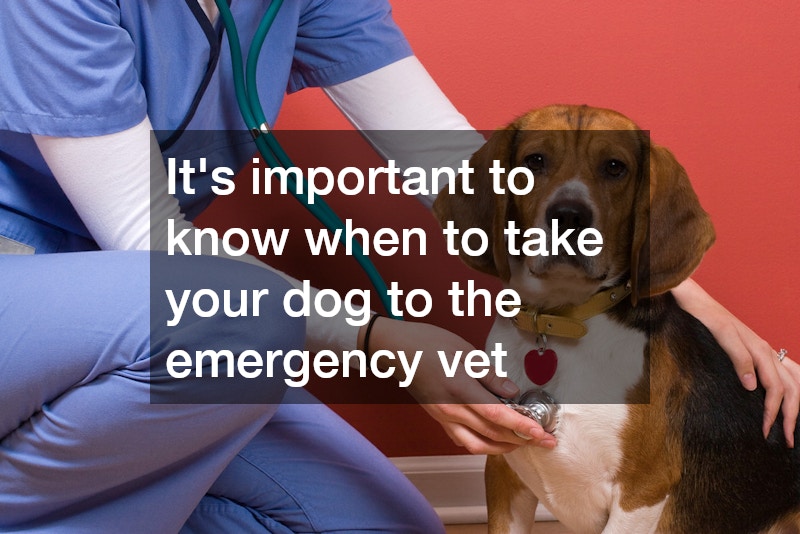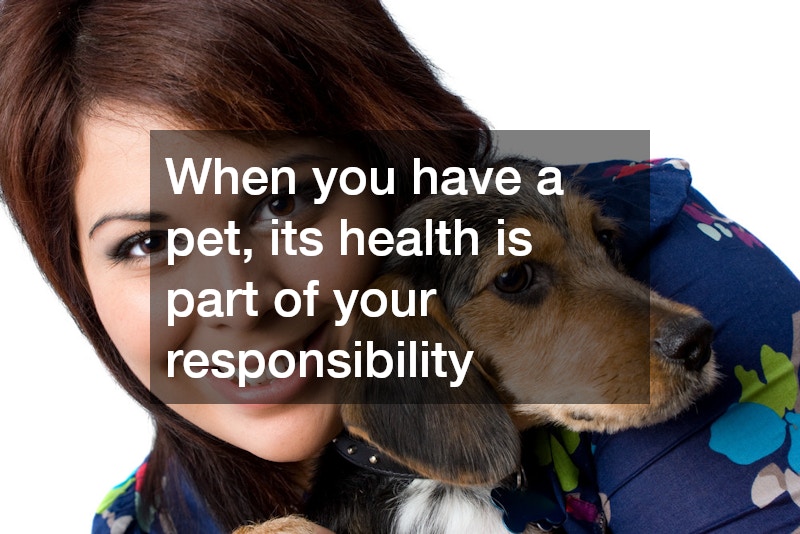
When you have a pet, its health is part of your responsibility. Not all veterinarians offer after-hours emergency services. If you own a pet, be sure to find the location of the local emergency vets. Post the phone number of the local emergency pet clinic in a prominent place since you never know when your pet will have an emergency.
To help prepare for a visit to the after hours animal clinic, it can be a wise idea to stop by and talk to the staff when you don’t have an emergency. You can tour the facilities and learn about their policies. Ask whether they offer a veterinary call service, which can provide after-hours telephone advice immediately after a pet injury.

It’s important to know when to take your dog to the emergency vet – as opposed to being able to wait for an appointment at the vet’s office. According to Preventative Vet, one of the most essential reasons is if the pet is hit by a car. Even if your pet doesn’t appear seriously hurt, it may have internal injuries. If your pet has difficulty breathing or is bleeding heavily, bring it to an emergency vet.

Many pet owners do not realize the extent of responsible pet ownership. This is why so many pets end up in shelters. A pet is a living animal and requires care, attention, and shelter. You also have to be prepared to care for your pet in the event of an emergency or illness. Once you make the decision to take on your pet, you are taking on their care for a lifetime.
The importance of routine vaccinations
Your pet?s vaccinations are very important to their overall health. Vaccinations prevent them from getting dangerous diseases, including rabies and heartworm. You will need to bring your kitten or puppy in for vaccines every 3 to 4 weeks until he is 16 weeks old. After this, your pet will need routine vaccinations once per year. It is not only important to their health, but some routine vaccinations may be required by your city or state. If you choose to travel with your pet, you may have to show proof of these vaccinations also.
Behavioral training
Your pet?s behavior has a lot to do with its training. While a lot of pet owners complain of their pet not being housebroken or having behavioral problems, a lot of this has to do with training. Enrolling your pet into a behavior class when they are a puppy can be helpful. If you need recommendations for behavior or training classes, ask your veterinary services for referrals. These classes will also help you bond with your pet, which will help with their training.
Flea medication
Flea medication and preventatives are not just for preventing pesky bugs. Fleas can be harmful to you and your pet?s health. If your pet goes outdoors, as most dogs do, it should be on a flea preventative. If you own a cat that also occasionally goes outdoors, you will want to use a flea preventative. Additionally, many pet owners stop providing flea prevention during the winter months, but it is best to keep your pet on it year round. The female flea can lay 2,000 eggs in her lifetime. Not taking care of the problem can cause it to rapidly increase.
Have an emergency plan
Pets, just like humans, can suffer from emergency injuries. The best way to deal with these emergencies is to know how to identify the signs of a pet emergency. When you know how to identify the signs of a pet emergency, you know when an emergency vet is needed. Know what your local emergency veterinary options are and where they are located. Not all animal medical centers are open 24 hours. However, if you notice signs of a pet emergency, you will want to find an emergency center. Knowing which animal hospitals are open all hours ahead of time can be helpful.
Proper daily care
There is likely going to be times when you have to spend the night away from home. You will have to plan for proper care for your pet during these times. This includes creating an emergency care plan and knowing that your caretaker knows how to identify signs of a pet emergency. When you leave your pet in the care of someone else, ensure that they know the foods they eat, the behavioral problems that you are currently working on, and the location and contact information of your veterinarian.
Pets are subject to the same injuries and illnesses that we are. Additionally, they have other concerns that we have to prepare for, including fleas. When you take on the responsibility of a pet, you need to create an emergency care plan. You should also be giving your pet regular flea medication and ensuring that they are being trained properly.
